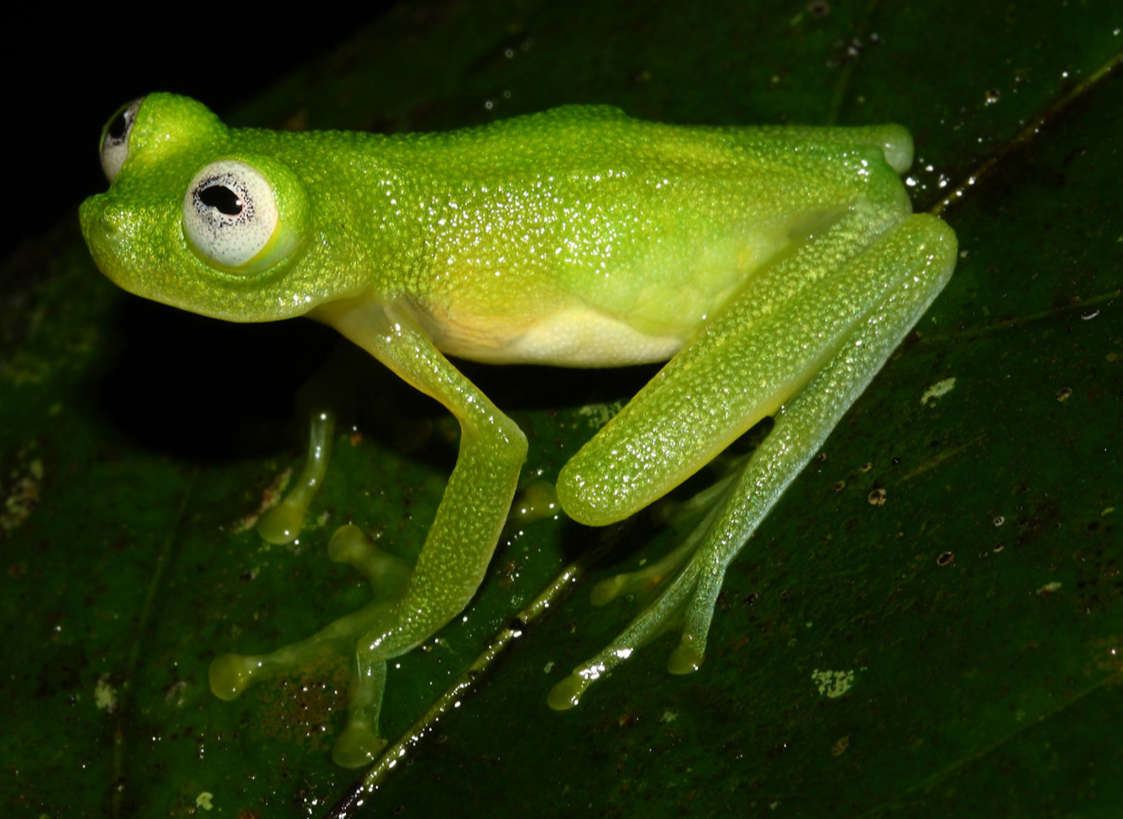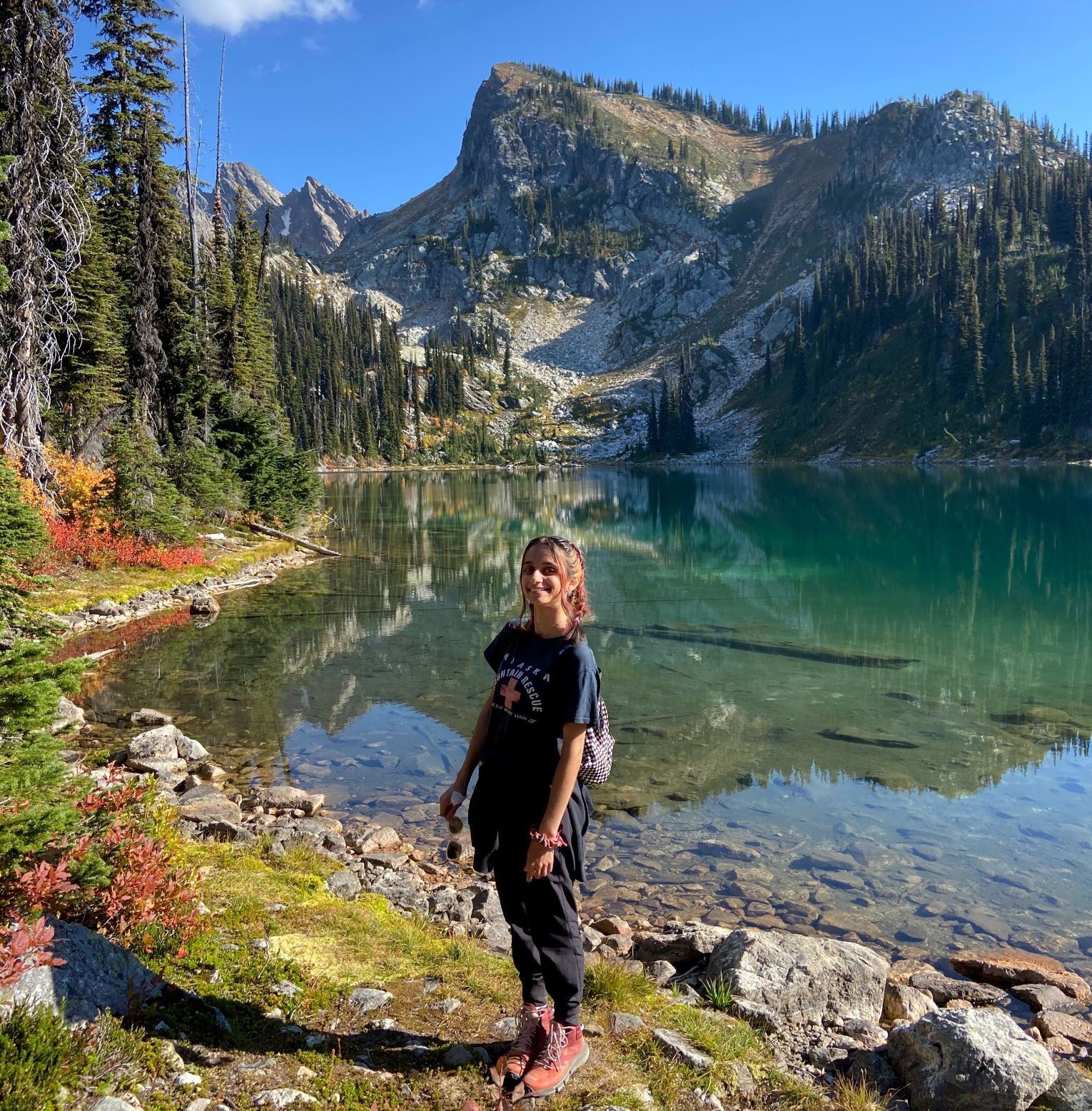
Meet Rekha Marcus
Welcome Rekha Marcus, a graduate student at the University of Victoria who is working with Pacific Birds through a research grant to help assess climate risk for coastal wetlands across the Pacific Birds' geography. Rekha’s research aligns with Pacific Birds' efforts at the intersection of climate change and conservation planning, particularly focusing on estuaries and birds of the Pacific Northwest.
Growing Up
Rekha attributes her interest in conservation and the outdoors to her youth in Costa Rica and she first became involved in science during high school. While helping with species surveys for glass frogs and learning about the glass frog research she was contributing to – building artificial pools to encourage breeding for the threatened frogs – she developed a strong interest in conservation. Seeing direct, practical applications of the work also inspired her to pursue science as a career.

Rekha’s undergraduate research at the University of British Columbia, Okanagan, focused on how climate change will impact protected areas in Canada over the next 30 to 40 years. Her study found that many protected areas overlap with regions expected to experience high climate variability, making them especially vulnerable to climate change.
This research and the real-world implications of the work encouraged her to pursue environmental studies at the University of Victoria after graduating, where she is now a Master's student working with Dr. Gerald Singh and Dr. Nancy Shackelford.
Rekha's Research
Part of Rekha’s work will be incorporating the 2019 British Columbia estuary ranking into a climate risk assessment. This BC-wide assessment of estuary occurrence and ecological importance to waterbirds incorporates variables such as estuary size, species rarity, waterbird density, herring spawn, and fish escapement into the ranking system. To this day, BC partners use the report’s estuary prioritization to guide strategic conservation decisions, such as land acquisition and habitat restoration.
Rekha will expand this estuary assessment across the Pacific Northwest. This involves using historical climate data and maps and incorporating climate predictions into the modeling process. She will also incorporate eBird data from the Cornell Lab of Ornithology on species occurrence across the region to improve the estuary rankings, which were not part of the previous models.
This project aims to identify areas throughout the Pacific Northwest that are at the most risk of being affected by climate change and sea level rise, those that are critical for many species, and those where taking action now would have a big conservation impact. Rekha shared that this is exactly the kind of work she is most passionate about—environmental science rooted in the needs of communities that will be directly useful for conservation managers and policymakers.

Outside of Work
After she finishes her Master's degree, she hopes to gain more experience in environmental science and conservation and do work that bridges the gaps between science, policy, and conservation groups.
In her free time, she likes to crochet, and indoor rock climb, and during the summer enjoys hiking, camping, backpacking, and enjoying all the incredible nature that Victoria offers.
We’re thrilled to have Rekha working with us at Pacific Birds and are excited about the important work she is doing to improve estuary conservation in the Pacific Northwest.
